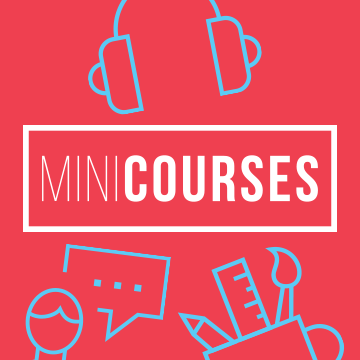Through the Mini Courses initiative, the Students’ Society of McGill University (SSMU) has offered classes during the Fall and Winter semesters as a way for students to learn about disciplines that McGill does not typically include in its curricula, such as drawing, writing, and even birdwatching. These classes allow students to dabble in new areas that may be intriguing but that they have never had the chance to explore.
SSMU Mini Courses have become increasingly popular among students and the greater Montreal population since they first began a decade ago. Additionally, Super Mini Courses function as quick workshops, rather than two month classes, for those who may not be able to commit to the longer timeframe of regular Mini Courses. Both enable students to find new passions, explore their hobbies, or master a skill for a CV. Bailey Hughes, SSMU Operations Coordinator, explained the program’s popularity among students.
“Often times, people feel like they don’t have time to explore interests outside of school, so I feel like [SSMU Mini Courses] are a really good way to do so,” Hughes said. “They are usually evenings or weekends, which is really convenient, […and this schedule makes it] easier [for] students and the general public to find time outside of their crazy schedules. [We try to make SSMU Mini Courses] accessible and inexpensive, [and] it’s fun if you want to learn something new.”
In addition to established classes that are offered every year, new courses are added in consultation with students’ interests, such as Egyptian Arabic and DIY for Sustainability. However, according to Hughes, it can be difficult to determine which courses garner interest in a given semester.
“Semester-to-semester, it’s really hit-or-miss because students’ interests are ever-evolving, so one course will do well [one] semester, but then it won’t do well the next,” Hughes said. “[To manage this fluctuation in interests], at the end of each course, we like to send back an anonymous feedback form with the question, ‘What course would you like to take?,’ so it’s really based on what the students want. We are flexible [and] want to try anything.”
When students take a course, it appears on their co-curricular record or their transcript for participants to show to future employers or graduate admissions teams. However, unlike courses offered through the university, the Mini Courses are not graded. Hughes acknowledges that this is especially appealing to students interested in venturing outside of their comfort zones but unwilling to risk harming their GPA.
“Recently, we paired up with CaPS, so now all SSMU Mini Courses show up on your co-curricular record, [with the option] of including it on your transcript,” Hughes said. “It is a great opportunity to build your resume or CV.”
Courses tend to fill up quickly in the beginning of the registration period. Even so, Hughes notes that it is possible to be added to a course last-minute, or at the very least, join the waitlist. Consequently, Hughes encourages students to reach out if it appears registration for a particular course has ended.
“If it appears closed, you can always just email us to appear on the waitlist,” Hughes said. “Even if the registration button is not there, [we] can always see if there’s room.”
To make sure students don’t have to wait, however, Fall Mini Courses typically appear on the website in August or September. With this semester’s Mini and Super Mini Courses starting this week, students should consider looking into taking a class if they have any interests or passions outside of McGill’s academic range or are simply interested in finding new skills or hobbies.








